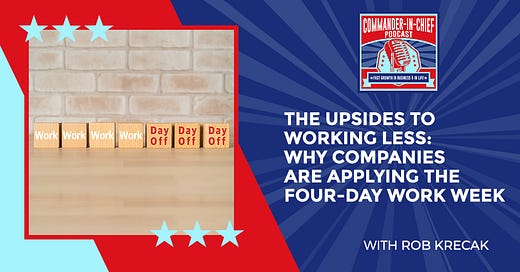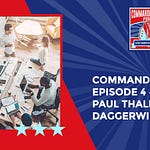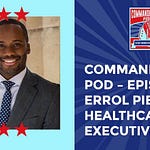You’ve probably heard of the four-hour work week. Nowadays, more companies are incorporating this model into their organization, but how can businesses benefit from lesser working hours? Joining Yuri Kruman today is Rob Krecak of Humans First, a consultancy that helps other companies transition to a four-day work week with no loss in productivity or profitability and the same pay for employees. Rob enumerates the upsides to working fewer hours and shares insights on the value of interconnectedness in the face of technology. From lesser burnout to being an attractive perk to applicants, learn about the many gains of this emerging people management philosophy.
The Upsides To Working Less: Why Companies Are Applying The Four-Day Work Week With Rob Krecak
I'm very excited to speak with Rob Krecak, who is the Chief Connection Officer at Humans First. Rob, welcome to the show. I'm excited to speak with you because there's something human in the title of your company. You're dealing with subjects that are very close to my heart, but please tell us a bit about yourself, your business, and your story. We would love to hear it.
Thank you so much for having me on the show. I’m grateful for the opportunity and appreciate you having me here. I grew up in Wisconsin in a small town of 2,500 people. That's in the Midwest, just 90 miles North of Chicago. My parents were super supportive and I have a sister as well. I ended up going to college and getting three different degrees. I got a Finance degree, Spanish and Management. I knew that I always loved numbers, so out of college, I ended up being a sell-side equity analyst.
What that means is that I would research medical devices and pharmaceutical stocks. I would talk to management companies, read financial reports, and then make research reports and financial models that analyze these companies. We would then publish it and give it to clients and talk to clients as well. That was a valuable experience. I admire the company. I respect them a lot. I think Barrett is a great place to work, but I felt like I wasn't helping people enough in that career.
While I was doing this 60-hour a week day job, I was attempting to take this test for a designation called CFA charter holder, which is difficult. They recommend that you take this annual test. You take it only once a year and you have to study or they recommend 300 hours of study every year. I was taking this test that requires 300 hours of study while working a 60-hour a week day job, and then starting my first business on the side as best as I could. That ended up being the Anytime Fitness health club.
The year of my life where there was some overlap between my day job and starting that business was easily the most difficult year of my life. I wouldn't want to repeat it unless I had to. It taught me that I couldn't be as perfectionistic as I wanted to be simply because time didn't allow it. I always say that I'm a recovering perfectionist. That time was pretty difficult for me to adjust to not being perfectionistic. The other thing is it helped me organize my time and be much better with it, think about what's important in life and what's important to me, and make sure that I could spend the time doing the things that I needed to.
I ended up opening up that business and as soon as it was successful and enough for me to cover my living expenses, I quit my day job. I traveled around the world. I went to Central America, South America and Europe, all with a backpack. About six months later, I came back and opened up two more Anytime Fitness health clubs. Those were the ones that I had purchased and were existing, and they were all in different states.
Now, I'm managing three different clubs across three different states. I have three different payrolls and stuff like that. That was pretty challenging. I learned a lot from that experience. That business model ended up being past its prime at that point. I ended up investing in four uBreakiFix cellphone repair stores. I ran all four of those in the Milwaukee area. Eventually, I ended up selling all those businesses.
Now I have my company, which is Humans First, which is a consultancy that helps other companies transition from a five-day work week to a four-day work week with no loss in productivity or profitability, and the same pay for employees. If you look at my career, I always have a career ADD. I went from finance and business to health and fitness to technology. I view Humans First as a combination of all three of those things and how I'm helping companies.
Thank you. That's quite a story. I'm pretty much familiar with the whole career hopping or ADD as you called it, which is interesting. Six careers so far for me. Let's see how things go from there. I have to provide some background maybe. I went to college with a lot of people that ended up in equity research, some of the absolute most brilliant people, some of the most motivated people, hard-working, crazy hours, the whole deal. For whatever reason, a lot of them ended up leaving and starting a business of their own.
I'm not sure if it's something around figuring out the fundamentals of a company, what's working and what's not. I have to ask you. It's not the most obvious thing to do equity research. To get a CFA makes perfect sense because you're bringing a lot of that to the subject matter. You've done a lot of it, but is there a particular reason why you decided to do fitness? Is that because it's a certain revenue-generating business? Is that a passion of yours or maybe both?
The mission of Humans First is to educate and make humanity aware of how technology is impacting mental health, relationships, and productivity at work.
I can tell you another story about that as well. When I was a kid, I didn't realize that at the time, but I was a little anxious and a little nervous. That anxiety and nervousness carried into high school. I wish I had been self-aware of everything that I know now. Back then, I wasn't. One of the things that happened was that I developed extremely bad acne. It was crippling. It was so bad that I had very low self-esteem and self-worth. It was tough for me to connect with people. It wasn't easy for me to look people in the eye.
In fact, one year for my yearbook picture, I didn't even go to the picture because I didn't want people to remember my face that way. That was very traumatizing for me. I didn't realize all this until several years ago. One of the things that I did was I used both my grades in school and lifting weights as an outlet or as a coping mechanism for this acne. My parents encouraged me to be very studious and hard-working and do a good job in school. I ended up being valedictorian in my class of 400 kids in high school.
With my lifting, I ended up setting the school record for my weight class for this weightlifting competition that all the football players do. To me, lifting weights and being fit was something that I had done since I was fourteen years old. Now I don't use it to cope with anything because it's part of my identity. I feel good when I do it. My motivation when I do health and fitness is to become the best version of myself. I believe that if I exercise for an hour a day, even 4 or 5 days a week, I am a better human the other 23 hours a day. I strongly believe that and that's what keeps me going with my fitness now.
You may not have been this way but that’s ultimately nerd’s revenge. Imagine you're lifting more than the football team guys. That's pretty awesome. I got to give you some serious credit for that. I don't hear that every day. My previous guests had a very similar experience. He also had crazy acne and also very introverted, etc. I can relate. I’m also a crazy introvert and I had acne issues.
I was the youngest kid in the class by a year and a half. I don't know if there's any lesson in all this but either introverts win or they focus much more on growing themselves. Not their outward appearance. Somehow that often translates into success. On your LinkedIn, it says that you've built seven businesses, if I'm not mistaken. Tell us about some of the other things that you've done before Humans First.
I have had nine businesses, 3 Anytime Fitness health clubs, and 4 uBreakiFix stores. I also had a tech startup, which was a Google Chrome extension, to funnel traffic away from Amazon.com and toward small businesses during the pandemic to help them generate sales. The last one is Humans First consultancy, now helping businesses be guided to a four-day workweek.
We're going to go deeper into Humans First. I'm curious. That's an awesome goal because, needless to say, mom-and-pop shops have suffered a tad because of Amazon and Walmart. How did that go over? How was that experience? Did you face resistance?
It was my first experience trying to make a tech company. I learned so many things for sure. The first thing I learned and I shouldn't have known this because I tell people this about my first business, Anytime Fitness, the health club. The same is true for technology firms in that everything takes twice as long and twice as expensive as you think it's going to be, which is it is what it is. I ended up getting that plugin published in the Chrome store and it was hard to get adoption for it.
I like to think of my life as a series of experiments. I both experiment on myself, then I do experiments with other things. To me, this was an experiment on, “I have this tech idea. I feel like it has legs and some potential. How much does it cost me and how long does it take for me to get it built? What does that process like?"
I ended up going into this online accelerator for companies with a company that was a development firm from the UK. I ended up hiring them as my developer and they ended up building the product for me. What I thought was going to take a month, ended up probably taking closer to three months. Eventually, I did get published in the Chrome Store. It is still available. Although, it's not my main focus anymore.
What is it called?
It's called Shop Mom and Pop. That's the name of the Google Chrome extension.
I'm going to check that out. That's great. I'm glad you did that. People are not blabbing. They're doing something about it because it's a huge issue. I saw you're also part of the Entrepreneurs' Organization. By definition, that means you've accomplished a lot in the entrepreneurial arena. Not just revenue but I think it's the journey. We were speaking about masterminds in the previous episode. Tell us how that has helped you. Yes, you've brought a lot of experience but no one has experience in everything. I'm sure you're part of other organizations like that as well. How has that helped your journey?
I've been a part of EO for many years. I heard about it originally from Tim Ferriss in The 4-Hour Workweek. He mentioned it and I was like, “If Tim Ferriss is a part of EO, there must be something pretty good about it.” I looked into it and I can say that, for me, it has been one of the most incredible, not only support groups. I call it a personal development group where we get together. We go through some tough sh*t. The way that EO describes it is we try to share with each other the top 5% and the bottom 5% of our lives, both business and personal lives.
Those are generally the things that you're probably only going to share with your spouse or maybe your best friend and not many other people. There's such an amazing thing that happens when you share that information with a group of people. You know they're truly there to simply listen and support you and see how they can help. I've made some incredibly good friendships through EO. I have also made some great business connections there. I've learned a ton about myself. I've learned a ton about other people.
I totally agree with what you're saying. I like to hope to think that I'm a student of the world. I am curious to know something about almost anything that I don't know something about, which is everything. Being in EO and connecting with other entrepreneurs allows me to understand their industries, their business models, and their challenges to a different degree than I would be able to without that peer group. That has been super valuable for me so that I can take that information and transfer it to my current business or other businesses and use it to make my business better.
I can't stress enough how good some of these masterminds can be. It's like you have a brain trust with people that are some of the best in the world at what they do, and they're complementary to your skillset. That is if it's a good mastermind and if it's run well and curated well. Not all of them are. It's not like just throwing some people in a room and hoping for the best. It's not quite like that.
Organizations like EO, Founder Institute, and a whole bunch of others do this well. Some don’t. That's fantastic. We're coming upon this Humans First. Tell us a bit about what it is and that it's combining a few themes from your life so far. Tell us about the impetus. How did you come upon, “I have to do this?” Why this? Why at the point where you started it?
I can share another story with you. I was at one of my uBreakiFix cellphone repair stores. I was checking guests in the store like I usually do. I did that a thousand times. This middle-aged woman came into the store with her son. I would guess that her son was maybe fifteen years old. She shuffles into the store and she's physically pushing her son up to the front counter. She said to him, "Tyler, you need to tell this man what you did to your phone," because the kid had broken his phone.
The kid started talking to me and I felt terrible for him because he could barely stammer out his sentence. He couldn't look me in the eye. He had poor body posture. My heart went out to him because he reminded me of me when I was in high school with bad acne. I could relate to how he was feeling and how he was acting. I also thought to myself, “Maybe he has a developmental disability or something.” I'm not quite sure, but I did my best to be patient with them. We got them through the transaction. We fixed his phone and everything went fine.
When you show people that you really care, that is a very powerful thing.
About two weeks later, another woman came in and she had her daughter in the store around the same age. Maybe 14 or 15 years old, and the same thing happened where this daughter could barely communicate with me. I had my a-ha moment. I said to myself, "These kids are coming into my store and needing to get their cellphones repaired right away, probably because they're using them a ton."
I'm guessing that these kids are using technology a lot. Maybe it's their technology use that is causing them to be this way. It's causing them not to have good social skills. I thought about that some more and I was like, “I think that makes a ton of sense.” I ended up reading this book by Jean Twenge called iGen, which is a study of all the different generations from the 1970s through 2017 when the book was published. It shows all these different things that dramatically changed in children around 2012.
What happened that year? That was the first year that smartphone penetration reached 50% in the United States. It was also the same year that Facebook bought Instagram. That is not a coincidence. Over the last years, I've researched this area, which is what I call technology mindfulness. I've read over a hundred books and over 2,000 articles and studies in five different areas, in the areas of Psychology, Neurology, Technology, Biology and Sociology in order to truly understand this problem at an extremely deep level so that I can understand how to fix it for humanity.
That's interesting that you mentioned Facebook and Instagram. Some might say you have a more than a passing resemblance to Zuck. Am I wrong?
I know. I tell my wife that the only time people say that is when my beard is short. I just trimmed it. I tell her that I'm going to have to grow it extra long because I'm not a big fan of Zuck.
We hit upon something big here. I have three kids and I'm seeing how each of them is so quick to pick up a phone and use the camera even to figure out the code somehow. It horrifies me. My first cellphone was in 2003, something like that. Even then, it wasn't quite Luddite. I have a friend who adopted in 2010 and 2011, something crazy. I'm not a Luddite but I see how quickly and how much kids were drawn to this stuff. You have to hide it. You have to put it away. Modeling the right behavior is the hardest part because we're always on with work and whatever.
All jokes aside, this is a huge problem because it affects everything from posture, socialization, psychology, development, you name it. It's a very scary thing. One thing that I always go back to is these Waldorf Schools in Silicon Valley and other places. Some of the many top executives from all of these FANG companies and other techs specifically put them in there.
What's so special about Waldorf? Tech free. None of this stuff. No iPads, no iPhones, none of that stuff. It makes you wonder. If they understand and maybe we can talk a little bit about Nir Eyal and all that jazz because he's one of the pioneers in treading out this paradigm for how to hook people. He then came out with the follow-up Indistractable, which is trying to run the damage perhaps. He was a great guy. I have tremendous respect for him.
It's a massive problem. I think we're maybe only scratching the surface as to all of the downstream effects of kids that have grown up in a completely digital world. Tell us a bit about some of the research that you've read. Tell us how horrible it is or maybe it’s not that horrible. Maybe there's a silver lining.
I have a story and then I can also provide some statistics for you. My background is in research analysis. I love data, numbers, charts and all that stuff. If you want a bunch of numbers, I'm happy to throw a lot at you.
Please do.
One of the things that are important for your audience to understand was one of the other side effects when I had acne was I also became addicted to video games. This was because the family computer was in my bedroom. It was the only place we had to put it. This was in the mid-‘90s before most people even had a cellphone. The internet was still pretty new. I always joke that I was addicted to technology before it was cool to be addicted to technology.
The other thing is that in different parts of my life, I was also addicted to Facebook. I was also addicted to my email. I've been addicted to three of the main technologies that people use. I saw the negative repercussions for myself. That's why this is a very personal crusade for me. There are 4.2 billion people connected to the internet. I don't want those people to go through what I did because it was very painful. It was not good for my mental health and a lot of other things.
The statistic that got me thinking about a lot of different stuff is this. This is by the way, a statistic from Nielsen, which has been measuring this for 50 years. You know it's very reliable. In America, the average person spends 12 hours and 21 minutes a day in front of screens and media. That is a statistic from before COVID. That does not include COVID. You can't blame that on COVID. That's a pre-COVID statistic. Put another way, we are spending three-quarters of every waking hour of our lives in front of screens and media.
We are putting technology first. Humans aren't meant to do that. We are meant to put humans first in our world. That is why I named my company Humans First. It's a reminder that we need to find a better balance between technology and humanity and how we connect with other people and spend time with other people because we're not putting humans first anymore. Probably the most concerning thing to me that I've learned in the last couple of years in researching this was the following.
In 2020, the most googled fear was a fear of other people. I understand that it was because of COVID, but regardless of the reason, we now fear the very thing that makes us most human, connecting with other people. That's crazy. I think that the root cause of a lot of this is how much we use technology. The mission of Humans First is to educate and make humanity aware of how technology is impacting mental health, relationships, and productivity at work.
Do you provide research? Do you work with corporations? What are some of the kinds of interactions that you have with others? Just to better understand Humans First.
We help individuals, teams and companies have better technology mindfulness habits. When I work with an entire company, that can ultimately result in that company officially transitioning to a four-day work week with no loss of productivity or profitability. When I say four-day workweek, it's four 8-hour days. It's not four 10-hour days. We’re not shifting schedules around. Every single person in the company, including the management team, gets a full day of time back.
You hit a point in there. We've heard of that, especially in the last few years. Before, it was a niche thing. It's like, “I don't know. That's maybe for those Swedish guys. Whatever.” It's having its moment. We don't know what happens when there's a recession. Nobody knows. Even in my anecdotal vision, here’s what I'm seeing. There are quite a few companies popping up that are either adopting this schedule. They're even perpetuating it. They're baking it into their consulting work, technology and expectations. Perhaps you could tell us more on the side of the studies showing that it is effective, not effective.
That's a great place to start. What do people know from actual experiments? I know that this has happened in larger companies. I think even Microsoft is in one place. What do we know about the four-day workweek? A lot of entrepreneurs and CEOs might say, “That's my Armageddon. First, they went remote. Now, they want a four-day workweek? What’s next?”
If all the people who are connected to the internet today knew about how technology impacts the world, the world would be a completely different place.
It's interesting you say that because here's the way I look at the four-day workweek. When you mentioned remote work, there were a handful of companies doing it. I don't know what the statistic was at the time, but let's say 5% to 10% of companies were offering remote work. Now, it's every company because we had to with COVID. It was a necessity. It’s understandable. It makes sense, but I view the four-day workweek as the same thing happening but maybe over the next 10 to 15 years.
The statistic is less than 1% of us companies offer this now. I think that in 10 to 15 years, the majority will be. You look at this and you say, “What does that do for me?” Maybe you say, “I have some concerns. How can I get everything done?” Andrew Barnes wrote the book The 4 Day Week. He is a very successful CEO. He took a couple of companies public in New Zealand. He also owned a 240-person financial services firm. He took his 240-person firm to a four-day work week with very little game plan. He did this in 2018. It was still a relatively new concept at the time. He then wrote a book about it.
What he found is that productivity during the four days still remained the same while still paying everyone the full amount of pay, but the interesting thing is he said that profit per employee increased by 14.5% at the end of the experiment. Obviously, he implemented it full-time. With numbers like that where people are getting the same pay, productivity is the same, and profit per employee goes up by almost 15%. That's a compelling case.
I think the biggest value proposition for a business owner is this. In any given company, you have the classic 80/20 rule where 80% of the profit comes from the top 20% of your employees. We call those the rockstar employees. Imagine if you have a perk so incredible that less than 1% of companies offer it like they are now that you can now attract an unlimited amount of rockstars because this perk is insane.
Now, you don't go from 20% rockstars. Maybe you're at 50%, 70% or 80%. What does that do to the value of your company? That's not a small incremental increase. That's a 2X, 3X or 5X increase in value because you have so many talented people working there. To me, allowing you to recruit rockstar employees and retain them is probably the best benefit of this.
Let's say we zoom out and we say that's a benefit that we offer instant attraction. We know that. I'm putting my head of HR hat on here. If you're looking at the balance of how work looks in all of its elements, we know that there are too many damn meetings. They are usually not run well. There's a whole bunch of fast throughout the workday. There are too many emails. There’s too much technology for that matter. That's the damnation of fast here.
There’s so much that we cannot just safely but profitably cut out from the workday in terms of how it's run, how it’s organized, where it's done, and by whom it's done for that matter. There are so many inefficiencies and so many BS conventions that we know don't work. This happens to be a core thing that is hiding in plain sight but because we're stuck in this industrial revolution mindset that we need everyone in the office, we need everyone because we're in command and control. I have to see them is such BS in an ideal world.
In practice, a lot of founders, CEOs, etc. struggle with this because they’re looking left, they're looking right at the 1%. I don't know if those are habits or those liberal swedes or whatever. I don't know what the hell they do there. Maybe they make their Spotify more efficient. I don't know. That's not for us, so how can we make the case? I'm sure you have come up with this problem. When you look left, you look right and you say, “I don't want to be the first.” How do you make that case? How do you prove that?
I'll throw a bunch of stats at you. What I've found is there are two main concerns as a CEO with implementing something like this. They're very valid. The first one is how we can possibly get more work done or the same amount of work done in four days instead of five. I will address that in one second. The second concern is, what about client coverage? How do we make sure that our client's needs are met when they're open five days a week and we're open four? That one is simple.
That is generally having a rotating schedule where let's say if you have a department of ten people. Five people work Monday through Thursday, and the other five work Tuesday through Friday. There could be some unique concerns. Andrew Barnes had a 240-person financial services company and he made it work just fine. If he can do that, you certainly can too.
I was in the financial services type industry. I get the client's needs. I totally understand but let's talk a little bit about, how do you get one day of productivity back? No one believes this part of it but let me go through some numbers for you. The average white-collar worker sends and receives 126 emails per day. That doesn't even include Slack, just email.
It feels like a lot more than that.
It could be for sure. Maybe you do have more, but let's take that at face value. Let's say that you have 126 emails, if you're spending two minutes per email on average, which I think is very reasonable. That means that you're spending four hours, half of your day, on email alone. Now, let's layer in two hours of meetings, which some people have probably more than that. Others obviously have less, but let's say you have two hours of meetings.
Now your day is four hours of email, two hours of meetings, and then when are you supposed to get your job done? The answer is you're not. You have two hours in an eight-hour day to get all the other things done for your job, which is bananas. That's crazy. The main things are reducing email and reducing meetings. Here's what's even more important that we can help companies with. When you're having an amazing day at work and you're crushing it, everything is going your way and you're getting a ton done, that psychological state is called flow. You're in flow.
All this research has been done that shows that when you are in flow at work, you are up to 500% more productive than when you are not in flow. What that means is in two hours, you can accomplish more than an entire day, but here's the problem. No one ever gets into the flow because when you're interrupted in flow, it takes you an average of 23 minutes to get back into it.
Now, the average person checks their email once every six minutes. They get a notification on their smartphone every fifteen minutes. If you're doing the math, no one is in the flow ever at all, and therefore, no one has ever been nearly as productive as they could be. They're not getting high-quality work done or not as high quality as they could be if they were uninterrupted and didn't have any distractions.
Most of us find ourselves in this position sooner or later. We're behind and we're constantly getting further behind. It's not a growth hack. It's not magic tools. Sometimes they help but it's setting boundaries and cutting up BS meetings, centralizing communication, making sure there's substance and structure, there are takeaways, decisions are made, and things move forward. A lot of it is structuring things thoughtfully. The 40 work week may not be another idea by now, but the case for it is bloody strong.
What's interesting is I'm also working with this nonprofit called 4 Day Week Global. Andrew Barnes, the guy who owned a financial services company, started this nonprofit. They started a trial now in the
United States to run a bunch of companies through the four-day week. They also have been using or doing this initiative abroad for some time. I spoke to Andrew and what he told me is when they opened the trial for the four-day week in the UK, in one week's time they had 700 companies applied.
I think that Europe is generally a little bit more advanced in their thinking in terms of worker rights and other more open-minded stuff. It's a matter of time until we catch up. If a company is open-minded, now is the time for you to have an advantage over everyone else because if you implement this now, you have such a better talent pool to choose from.
Dream as if you'll live forever. Live as if you'll die today. - James Dean
Let's adjust this again. It's a brilliant idea. It makes perfect financial sense. Never mind the human sense because people want to work the four days, be as productive, and have a greater profit per capita. We have a recession that's going to happen. I don't know if it's next week, next month or next year. It is going to happen. Hopefully, it won't be too strong and it won't be too prolonged but it will happen. These things are inevitable. What happens then? It's the same principle with remote work.
We were speaking with a previous guest. He's in the financial services space. In financial services, even throughout COVID, there's this massive pressure, “Back in the office.” The law is servicing the financiers. You have a lot of prevailing headwinds. Those prevailing headwinds, I would imagine, probably would get stronger as recession comes.
The power of the individual worker based on the less than hot talent market becomes weaker. We have this more centralized command and control, leadership structure are coming back, then let's take that stuff back. How do you think this idea becomes more adaptable in that environment, which inevitably is coming up?
I have some more data for you that I would love to share. I've spent an inordinate amount of time trying to understand humanity within this company with my research. Do I understand it as well as a PhD who's a psychiatrist? No, but here's what I see happening. If you look at a measure of uncertainty in the United States population, from about 1970 to the year 2000. Uncertainty varied a little bit but it stayed within a range.
All of a sudden, around the year 2000, it did a hockey stick up and the sense of uncertainty skyrocketed. I believe that was because that's when the internet started becoming more prevalent. We started to become more connected. Both via computers and in cellphones. Not smartphones at the time but still regular cellphones. This extreme interconnectedness is helpful in that it allows us to accomplish things and communicate and do certain things. It also creates this low-level anxiety that I don't think people understand is happening.
I'll answer your question here in a second, but my argument would be that during a recession, a CEO would want to do this more than ever and here is why. During a recession, what happens? Our sense of security and safety goes down because the economy is uncertain. We're not sure if we're going to be able to meet our bills. Lower uncertainty means that we need to foster some sense of security or certainty in a different way. The best way that humans do that is by nurturing their social support system or being with people that they care about.
If you have an extra day to be with your family or spend time in meaningful relationships that matter to you, you increase your sense of social support. That decreases the sense of anxiety and allows you to do your job better. It seems very counterintuitive but I believe that during a recession, this is needed more than ever because everything else in the world is super uncertain. You would want to have more time with friends and family who care about you.
The intuitive side of me is screaming, “Absolutely. Why doesn't everyone get this?" The transactional nature of a lot of our work and our work relationships and the nature of employment make it much more difficult. You're right. Those that get it are going to see the value of something like this. I hope and pray whatever I can do from my side of things, I'm all for the four-day work week. I don't know about the four-hour work week. That's a whole other animal. I don't know where the secret is for that one. I haven't discovered it yet but four-day work week, I'm all for it.
I would love to pivot a little bit. Clearly, you run a company that's called Humans First. You've given us bits and pieces about your people management philosophy because you work with clients to develop elements of that. What does that look like in the organization itself? Helping people to get into a state of flow, I understand 40 work week, so they can develop stronger social and work relationships. It’s the same idea. What are some of the other pillars of your approach to managing people?
I wish I could take credit for this saying but I can't. I believe it's from Richard Branson. He said this and I loved the simplicity of it and it resonated with me very much. He said, “My business philosophy is simple. I take care of the employees. The employees take care of the clients, and the clients take care of the business. It's my number one goal to help my employees be in a situation and give them the tools they need to succeed and help them be the best version of themselves, both personally and professionally. If I can do that, then everything else will fall into place.”
I feel braggy when I say this but I think a testament to that is in my former businesses, I always developed such good relationships with one of my former employees that he and his wife asked me to marry them. I was the officiant at their wedding. One of my members at one of my gyms, I developed such a good relationship with him that he asked me to stand up at his wedding. I love connecting with people and showing them that I care, if you can do that, whether it's an employee or a client or whatever.
When you show people that you care, you have to mean it. That is a very powerful thing. It has become increasingly rare now because all of our relationships are surface space. They're digital. If I call my mom and tell her, "I love you, mom," over the phone, that's very different. She interprets that differently. The chemicals in her brain are released differently than if I text my mom, “I love you, mom.” People don't realize that stuff anymore.
That's why I got my mom to move from Arizona to Israel. I'm not joking. It's true. It’s like, “Let's live in the same place. Enough of this.” FaceTime is great. God bless Steve Jobs and Jony Ive or whatever but you got to have the face-to-face thing. You got to drive to places. You got to make sure the kids and the grandma see each other. You can't replace that stuff. I'm with you. That's interesting. You've presented some things that are, in some ways, counterintuitive.
Certainly, the former New Yorker in me never gets out of me. You're always a New Yorker. It’s screaming like, “You're a Midwestern but those habits.” There's no but. A lot of things start out as something niche. They start out as something like, “You liberal Europeans.” I think there's something very strong here. I would love to find a way.
In my HR consulting practice, the same idea. I would almost be afraid to be laughed at by proposing something like this. Now that you've given a different way to look at this, both in terms of higher profitability and stronger connections, suddenly, it's not such a wild idea. I appreciate you framing it that way. That's a very strong argument. I'm going to use that myself.
Towards the last part of the show, we ask every single guest essentially the same question. It's not only simple but the guidance that our guests offer, sometimes, it's quite simple and straightforward. We're thinking about those conversations that we have in life or the four conversations that I always bring up. One is with the body. The second one is mental models and life skills. The third one is with other people, and the fourth one is with God or the universe. We're thinking in this hierarchy.
In your life, you're clearly someone who is incredibly well thought out. You've worked in different industries. You’ve built multiple businesses and invested as well. We haven't talked about that. That's another very holistic and removed way of looking at a business and understanding its fundamentals. We can connect that easily to equity research. What would you share with us around any of those four conversations that have served as part of your life philosophy that has brought you maybe clarity, meaning, impact, success or maybe all four?
There are a couple of things that I can share with you that are different but related. I have this document called Character Is Destiny. It's like my personal value statement. It sounds crazy but it's a single sheet of paper printed on a printer. I probably have spent over 50 hours on that sheet of paper. Revising it, thinking about it, and questioning everything. I read through that every week. I feel like that has been one of the most valuable things that I've ever done because if you don't know what your values are, how can you make decisions?
I filter all my decisions through my values. I have my ten values and my life goal or my life objective. My life goal is to positively impact the lives of one billion people while still being a great husband, father and friend. I believe that Humans First can do that because my number one value is humans first. I know that if all the 4.2 billion people who are connected to the internet knew what I knew about how technology impacts the world, the world would be a completely different place. That's very motivating to me.
A couple of other sayings or things that I live by, and this is a direct quote from that value statement. I didn't come up with this. I believe it was from James Dean but the quote is, “Dream as if you'll live forever and live as if you'll die tomorrow.” I resonate with that because it makes me want to get up every day and make sure that I love what I'm doing and that I'm making the most of each day. I don't have any regrets when I die.
The amount of love, success and happiness in this world are infinite. The amount of love and success and happiness that I have, doesn't take those things away from you. So let's all live a life where we have as much love, success and happiness together as possible.
One other thing that is a little bit more recent that I internalized, my wife and I said this to our guests at our wedding, “The amount of love, success and happiness in this world is infinite." What that means is that the amount of love and success and happiness that I have doesn't take those things away from you. Let's all live a life where we have as much love, success, and happiness together as possible. That to me is powerful to think about.
This is incredible. This is one of the most interesting conversations I've had certainly on this show. You offered us tremendous guidance in terms of your own life philosophy. Certainly, if you're open to sharing that one-page with values and goals, I think our audience would find it tremendously useful. I'm always a fan of learning anything new that I can.
You've certainly shared with us a tremendous set of not just ideas but very concrete ways of looking at the workplace and how it's structured and how it's run. You've given us a very interesting journey and path and set of stories. I appreciate it, Rob. This has been one of the best conversations I've had. Thank you. I hope we can do another one or two installments. It will be a tremendous pleasure.
I appreciate you for saying that. The pleasure was all mine. I'm grateful for the opportunity. I hope that for anybody reading this, if somehow this impacts your life positively in a very small way, that is a huge win to me. I'm grateful for the opportunity to chat with you. Hopefully, I have your audience find some value in this.
I'm confident we'll feed you a few of those people into the one billion, God-willing. Thank you again. We would love to continue the conversation. This has been great, Rob. Thank you very much.
Thank you, Yuri.
Important Links
LIKE WHAT YOU HEARD ON THE COMMANDER-IN-CHIEF PODCAST?
Leave a Tip :) [$10 ] / [ $5 ] / [ $1 ]
—
Executive Coaching Office Hours (EXCLUSIVE FOR READERS)
Ask me ANYTHING career- or business-related for free, 1-on-1 (REALLY)
Click the link to schedule a time.
—
Are there any other subjects you want me to cover? Hit “Reply” and tell me!
I love hearing from you guys :)
—
If you enjoyed this newsletter, please forward to a friend (or 5 :) or someone you feel would benefit from reading it!
Yuri Kruman
+1 (347) 415-0265 (Whatsapp)

















Share this post